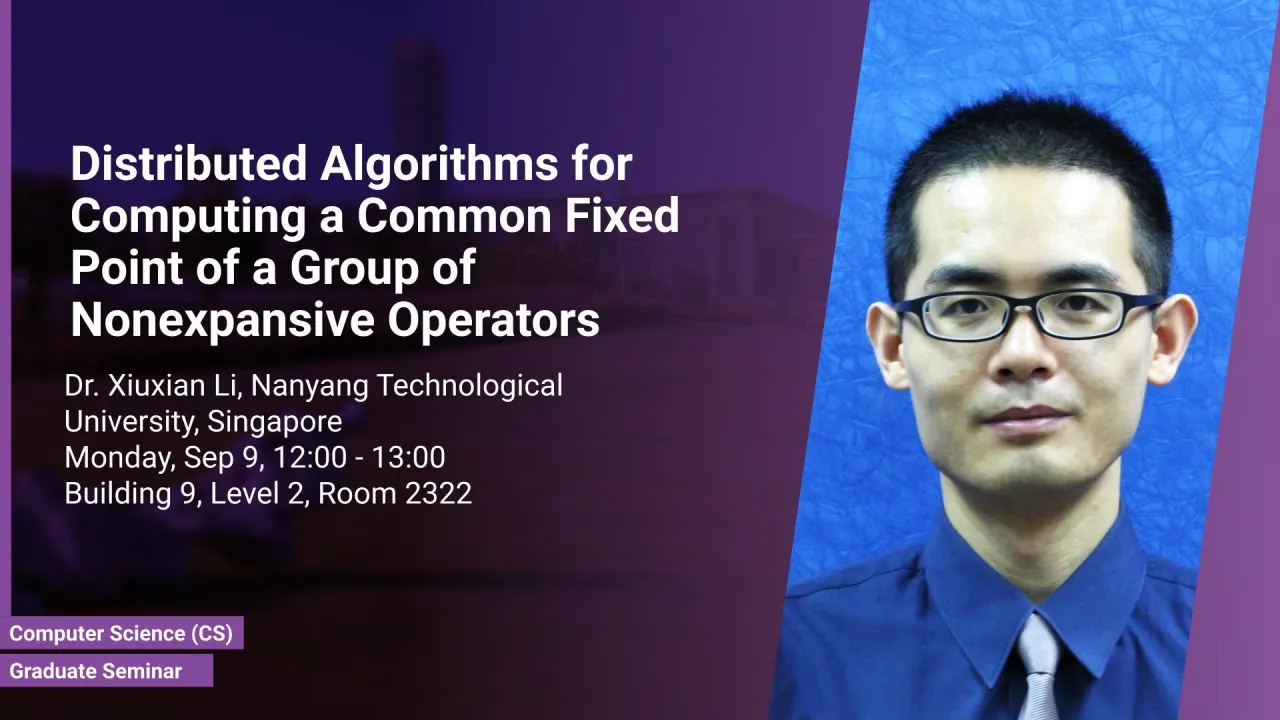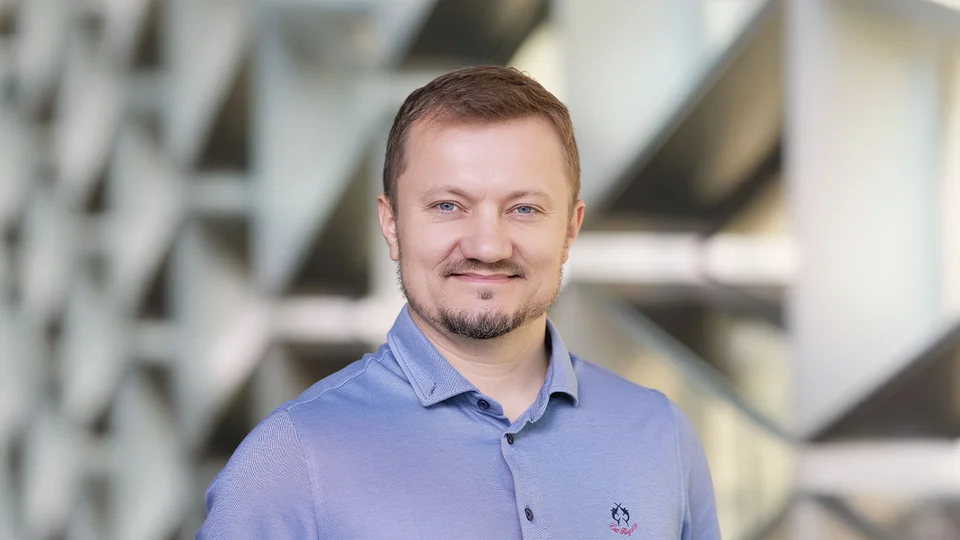
Distributed Algorithms for Computing a Common Fixed Point of a Group of Nonexpansive Operators
- Dr. Xiuxian Li, School of Electrical and Electronic Engineering, Nanyang Technological University, Singapore
B9 L2 H1
This talk is concerned with the problem of seeking a common fixed point for a finite collection of nonexpansive operators over time-varying multi-agent networks in real Hilbert spaces. Each operator is assumed to be only privately and approximately known to each individual agent, and all agents need to cooperate to solve this problem by local communications over time-varying networks. To handle this problem, inspired by the centralized inexact Krasnosel’ski˘ı-Mann (IKM) iteration, two distributed algorithms, called distributed inexact Krasnosel’ski˘ı-Mann (D-IKM) iteration and distributed inexact block-coordinate Krasnosel’ski˘ı-Mann (D-IBKM) iteration, are proposed. It is shown that the two algorithms can converge weakly to a common fixed point of the family of nonexpansive operators.
Overview
Abstract
This talk is concerned with the problem of seeking a common fixed point for a finite collection of nonexpansive operators over time-varying multi-agent networks in real Hilbert spaces. Each operator is assumed to be only privately and approximately known to each individual agent, and all agents need to cooperate to solve this problem by local communications over time-varying networks. To handle this problem, inspired by the centralized inexact Krasnosel’ski˘ı-Mann (IKM) iteration, two distributed algorithms, called distributed inexact Krasnosel’ski˘ı-Mann (D-IKM) iteration and distributed inexact block-coordinate Krasnosel’ski˘ı-Mann (D-IBKM) iteration, are proposed. It is shown that the two algorithms can converge weakly to a common fixed point of the family of nonexpansive operators. Moreover, under a (boundedly) linearly regular assumption, it is proved that the D-IKM iteration converges with a relatively fast rate. Furthermore, it is shown that the same convergence rates can still be guaranteed under a more relaxed (bounded) power regularity condition. A couple of examples are finally presented to illustrate the effectiveness of the proposed algorithms.
Brief Biography
Xiuxian Li received the B.S. degree in mathematics and applied mathematics and the M.S. degree in pure mathematics from Shandong University, Jinan, Shandong, China, in 2009 and 2012, respectively, and the Ph.D. degree in mechanical engineering from the University of Hong Kong, Hong Kong, in 2016. Since 2016, he has been a research fellow with the School of Electrical and Electronic Engineering, Nanyang Technological University, Singapore, and a senior research associate with the Department of Biomedical Engineering, City University of Hong Kong, Kowloon, Hong Kong. His research interests include cooperative control and distributed optimization, operator theory, formation control, and multi-agent networks.
